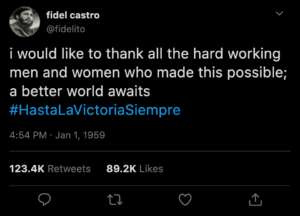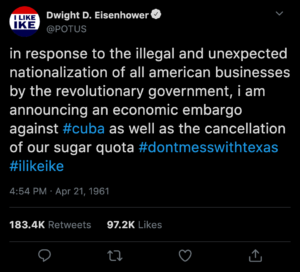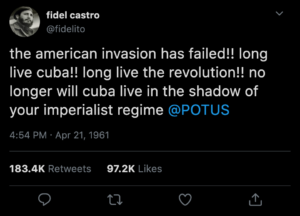Throughout the duration of this semester, I have found that the Black Mirror episodes we were assigned were consistently among the most compelling and thought-provoking assignments we had. Because I enjoyed the episodes so much, I watched a number of extra episodes in addition to those that were assigned. The one that I think would be most beneficial to add to the curriculum is “White Christmas”.
The episode deals with a number of themes that are important as far as digital culture is concerned and would fit in well with the rest of the assignments. It intertwines multiple story arcs that don’t come together until the end of the episode and utilizes a beautiful narrative structure that keeps it as interesting as it is thought-provoking.
The key themes that underpin the episode are the nature of privacy rights in the digital age, how technology affects personal relationships, and how technology can both give us power and render us powerless in some situations. Additionally, this episode addresses questions about the extent to which AI programs deserve rights. What I think makes the episode a valuable addition to the class is that it ties all these themes together and shows how all the different topics we discuss in class come together and influence each other. On top of these topics, it also deals with some things that aren’t strictly about technology but are still worth discussion and very relevant to our modern world, such as the rights inmates deserve.
Because of the variety of themes it contains, this episode could be assigned at any time during the semester, but I think it would work best towards to end of the semester, to show how many of the topics we discuss can come together and create a future fraught with ethically ambiguous situations.
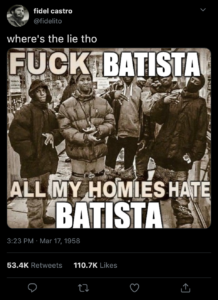

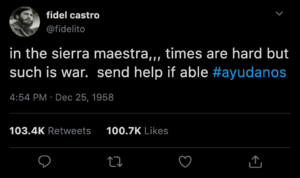 It was on Twitter that Castro first announced the victory of his revolutionary forces in the fight against Batista.
It was on Twitter that Castro first announced the victory of his revolutionary forces in the fight against Batista.